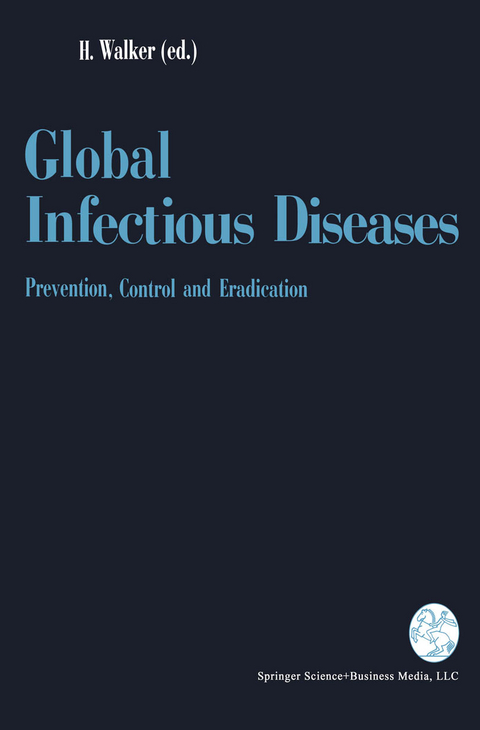
Global Infectious Diseases
Springer Wien (Verlag)
978-3-211-82329-3 (ISBN)
Anhand 12 ausgewählter Beispiele unterschiedlicher Infektionskrankheiten (u. a. AIDS, Hepatitis, Malaria) wird der derzeitige Forschungsstand über Ausrottungs-, Eindämmungs- und Kontrollmöglichkeiten übersichtlich dargestellt und neue therapeutische Ansätze analysiert.
Introducing a book on global infectious diseases is a daunting challenge. Modern developments in molecular research, newly available opportuni ties for earth-orbiting, satellite-based surveillance as a means of predicting certain regional epidemics, and the introduction of remarkable new anti biotics which can cure some awesome problems such as river-blindness would each have astonished even the most jaded reader only a few decades ago. Just the same, even with these laudable advances, malaria is still with us and both poliomyelitis and tuberculosis are growing worldwide problems. As a holdover from my own medical school days, I must confess to an affection for the older term of "tropical medicine" and its historic context, in preference to the more popular present name which is the title of this book. A century or two ago the motives to study tropical medicine were obvious: nations having enormous amounts of maritime trade with distant lands established colonial empires where health in the colonies was a con cern for both the natives and the colonists. It is unsurprising that the great institutes for such studies sprang up in London, Amsterdam, Hamburg, New York and New Orleans, but few of these centers and other similar ones have continued to flourish or even to survive, perhaps because the days of empires have gone.
David H. Walker MD Carmage and Martha Walls Distinguished University Chair in Tropical Diseases Director, WHO Collaborating Center for Tropical Diseases Professor and Chair, Department of Pathology University of Texas Medical Branch Galveston TX USA.
Infectious Diseases in Developing Countries: An Introduction to the Major Problems in Global Medicine.- The Challenge: Biotechnology Transfer to Public Health, Examples from Arbovirology.- AIDS: The Uses and Limitations of Science.- Strategies for Control of Viral Hepatitis in the Age of Molecular Biology.- Rickettsial Diseases: From Epidemiology to Molecular Biology. The Pathway Toward Disease Control.- Diarrheal Diseases: New Challenges and Emerging Opportunities.- Prospects for Control of Malaria in the Twenty-First Century.- Black Fungi: A Model for Understanding Tropical Mycoses.- Schistosomiasis: From Genes to Latrines.- Filariasis: Present Status and Future Challenges.- Current Issues in Cysticercosis: Proteins, Proglottids, Pigs, and Privies.- Antigenic Variation in Borrelial Diseases of Humans.- Perspectives on Chagas' Disease in Latin America and the United States.- Strategies for the Twenty-First Century - Control or Eradication?.
| Erscheint lt. Verlag | 19.5.1992 |
|---|---|
| Vorwort | T.N. James |
| Zusatzinfo | XIII, 240 p. 33 illus. |
| Verlagsort | Vienna |
| Sprache | englisch |
| Maße | 155 x 235 mm |
| Gewicht | 476 g |
| Themenwelt | Medizin / Pharmazie ► Medizinische Fachgebiete ► Mikrobiologie / Infektologie / Reisemedizin |
| Naturwissenschaften ► Biologie ► Mikrobiologie / Immunologie | |
| Schlagworte | AIDS • Antigen • arbovirus • Developing Countries • Health • Hepatitis • Infectious • infectious disease • Infectious Diseases • Infektion / Infektionskrankheiten • Malaria • prevention • Public Health • Schistosomiasis • Viral Hepatitis • Virology |
| ISBN-10 | 3-211-82329-8 / 3211823298 |
| ISBN-13 | 978-3-211-82329-3 / 9783211823293 |
| Zustand | Neuware |
| Haben Sie eine Frage zum Produkt? |
aus dem Bereich


